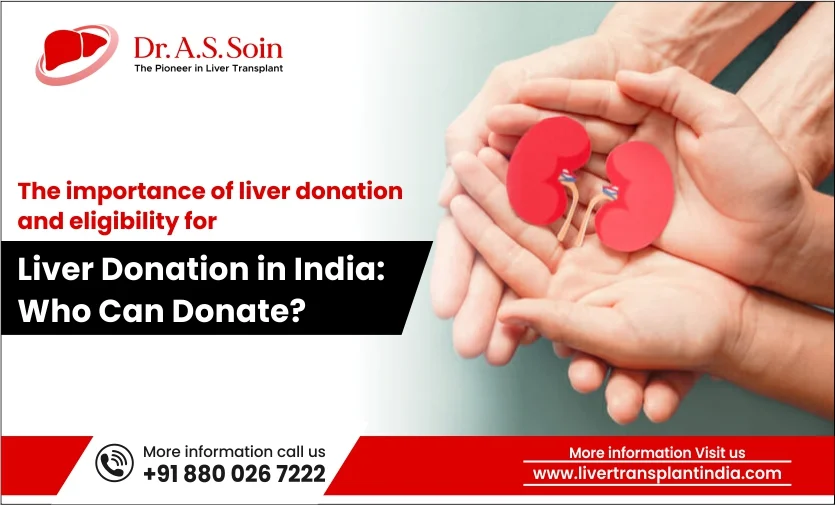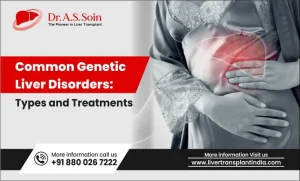Liver donation is a profoundly selfless act that can save lives. Given the liver’s vital role in digestion and detoxification, liver failure can lead to life-threatening complications. Liver donation provides a lifeline for those suffering from liver diseases. In India, the demand for liver donors has surged due to the increasing prevalence of liver disorders. Fortunately, the liver has a unique ability to regenerate, allowing living donors to donate a portion of their liver while both the donor’s and recipient’s livers grow back to full function.
This blog aims to clarify misconceptions, highlight the significance of liver donation, and explain who is eligible to donate in India. Whether you are considering becoming a donor or seeking to learn more about this life-saving process, this guide provides crucial insights.
Table of Contents
ToggleThe Significance of Liver Donation
Liver donation is not just an act of kindness; for patients with liver failure, it often marks the difference between life and death. The rising incidences of cirrhosis, hepatitis, and fatty liver disease have caused a growing number of patients to require transplants. Unfortunately, there is a significant shortage of available livers, resulting in many preventable deaths.
Imagine a patient with advanced liver disease, experiencing severe fatigue, jaundice, and cognitive issues due to toxin buildup. For such a patient, a liver transplant could mean a return to normal life—rejoining family, resuming work, and enjoying daily activities. However, this can only happen if enough people come forward to donate.
Liver transplants, whether from living or deceased donors, offer patients a second chance at life. With each transplant, the quality of life improves dramatically. Thus, liver donation is a true gift that saves lives.
Living and Deceased Liver Donation
Liver transplants can occur through two primary forms of donation: living and deceased. Each has its own advantages and challenges.
- Living Donation: In a living donation, a person donates a portion of their liver, taking advantage of the organ’s ability to regenerate. The donor’s liver grows back to its original size within a few months. The main advantage of living donation is timing—the transplant can be scheduled, and the patient does not have to wait on a list. However, the donor may experience postoperative pain, infection, or other complications, though most recover well thanks to advances in medical care.
- Deceased Donation: A deceased liver donation occurs when a donor passes away and their liver is transplanted into a recipient. This often involves the transplant of the entire liver, which is beneficial for patients needing more complex procedures. The primary challenge with deceased donation is the unpredictability of waiting for an available organ, as the number of donors is limited, and the waiting list is often long.
Both forms of donation are crucial for saving lives, but living donation provides a greater chance for timely transplantation, significantly enhancing the patient’s survival prospects.
Eligibility for Liver Donation
Becoming a liver donor is a significant decision, and not everyone is eligible. To ensure the safety of both donor and recipient, strict criteria must be met.
- Age: Donors are typically between 18 and 55 years old. This age range ensures that the liver is healthy enough to regenerate in both the donor and recipient.
- Blood Type: Matching blood types between donor and recipient is essential to minimize the risk of rejection post-transplant.
- Overall Health and Lifestyle: Potential donors must be in good health, which means:
- No significant health conditions such as diabetes, cancer, or heart disease. Having had upto two well contolled comorbidities, can be accepted as liver donor after due clearances.
- No history of heavy smoking or recent smoking cessation.
- No history of alcohol abuse, as alcohol damages the liver.
- A healthy body mass index (BMI) to reduce the risk of surgical complications.
- Medical Assessment: A comprehensive medical evaluation, including blood tests and imaging, is required to assess the health of the donor’s liver. This ensures that both the donor’s liver can regenerate and that the recipient will receive a healthy liver portion.
Living Donor Eligibility in India
In India, living liver donation is regulated by the Transplantation of Human Organs Act (THOTA), ensuring the safety and ethical integrity of the process.
- Legal Requirements: Living donors must be at least 18 years old to donate. Under THOTA, only close relatives (spouse, parent, sibling, or child) can be donors. Non-relatives may donate only with special government approval to prevent exploitation.
- Family Relationship Rules: If the donor is not a relative, they need special authorization from the government to ensure the donation is altruistic and not driven by financial motives.
- Medical and Psychological Evaluation: Prospective donors undergo several medical tests, including MRIs, CT scans, liver function tests, and psychological assessments, to determine their eligibility and ensure they are mentally prepared for the procedure.
Deceased Donor Eligibility in India
For deceased liver donation, India follows a strict legal and medical framework under the Transplantation of Human Organs & Tissues Act (THOTA).
- Brain Death Certification: A deceased liver donor must be certified as brain dead by a team of licensed physicians. Brain death occurs when the brain stops functioning, even if the heart continues to beat with the help of life support.
- Consent and Legal Framework: According to THOTA, organ removal cannot occur without the consent of the donor’s family, even if the deceased was a registered organ donor.
- Medical Examination: Before transplantation, the donor’s liver undergoes extensive evaluation, including blood tests and imaging, to ensure it is suitable for transplantation.
Ethical and Legal Considerations of Liver Donation in India
India’s THOTA framework ensures ethical and transparent liver donation processes, protecting both donors and recipients.
- Informed Consent: Whether living or deceased, donors must give informed consent. No organ transplant can legally proceed without it.
- No Financial Gain: THOTA strictly prohibits any form of financial exchange for organs, ensuring that donations are made purely out of altruism.
- Common Misconceptions: Some ethical concerns revolve around the fear of brain death being hastily declared to harvest organs. However, India’s legal system mandates that brain death must be confirmed by multiple medical professionals before any organ removal.
Conclusion
Liver donation is a profound gift that can save lives. With the rising number of liver failure patients in India, the need for donors has never been greater. Donors play a crucial role in bridging the gap between supply and demand, giving patients a second chance at life.
If you are considering becoming a liver donor, it is essential to consult experienced professionals like Dr. A.S. Soin at Liver Transplant India, Medanta. They can guide you through the process and explain the life-changing impact of your donation. Consider becoming part of this life-saving mission today.








